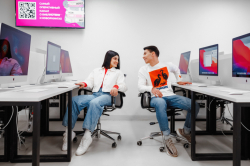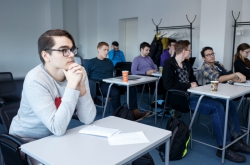Industrial Master’s programs
These Master’s programs are organized in collaboration with ITMO University’s industrial partners. Their main distinguishing feature is a strong emphasis on R&D work in the real economy. This type of Master’s programs is aimed at Master’s students willing to pursue their career as engineers, designers and process engineers.
How studies are conducted
Industrial Master’s programs are implemented at several ITMO University’s schools.
According to Vladislav Bougrov, head of the School of Photonics and head of the industrial Master’s program “LED Technologies and Optoelectronics”, what makes industrial Master’s programs different from other types of Master’s programs is that their disciplines are developed in close collaboration with leading enterprises in the field. For example, several courses in optoelectronics are developed and delivered by specialists from the industry. Apart from listening to lectures, students have an opportunity to do an internship and work on real-life tasks at one of the university’s industrial partners, including the Hevel company, the LED Devices industrial plant, Connector Optics, GS Group, LedEnergoServis, and others.
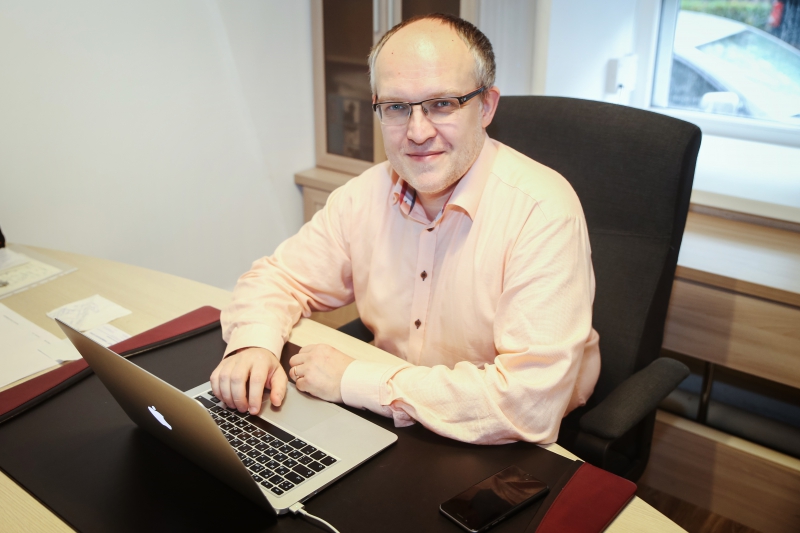
“What opportunities does it present for students? First, the disciplines they study make them sought-after employees both in Russia and abroad. The fact that most of the lectures are delivered by specialists working in the industry, combined with a practice-oriented approach to teaching and learning, ensures a very high level of training. You don’t have to teach our graduates from scratch as it often happens. They already know all the basics and have a working experience in the industry. What is also important is that we give our students an opportunity to establish useful connections while studying on the program, which will definitely come in handy in their future career,” shares Vladislav Bougrov.
Another industrial Master’s program, “Electrical Engineering”, is implemented at the School of Computer Technologies and Control. As noted by the program’s head Dmitry Lukichev, it is aimed at training highly sought-after specialists in the field of development and modernization of various technical systems. The majority of the programs’ lecturers are the employers of ITMO University’s R&D Center Precision Electromechanics, which develops electric power drives for various purposes.
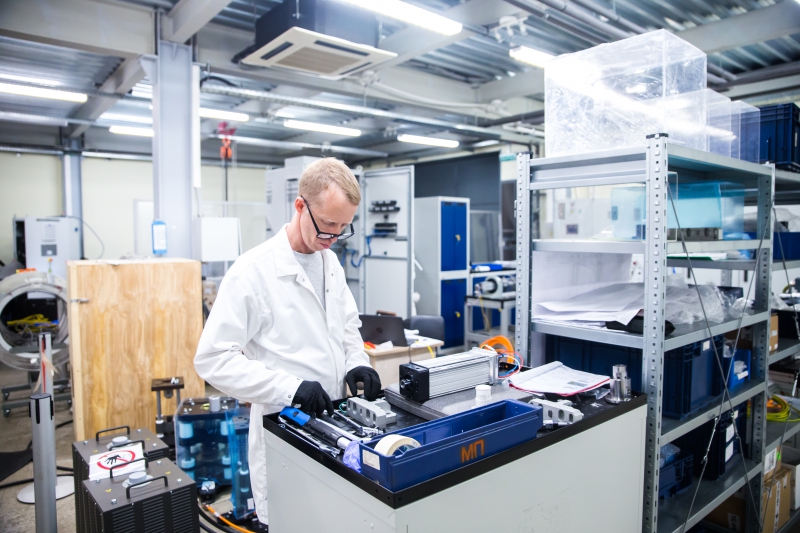
Career prospects
“Our industrial Master’s programs are aimed at training highly qualified specialists who can aspire to positions at leading companies. I have to note though that we don’t train our students exclusively for work at our partner companies. The courses are organized in such a way that all the students can acquire the general knowledge in the field of industrial optoelectronics and then get employed at any company they like,” says Vladislav Bougrov.
Dmitry Lukichev adds that upon successful graduation, students will be able to work at any big company in the field of optoelectronic engineering. Among the companies that the graduates of ITMO’s Master’s program in Electrical Engineering work at are the Diakont company, Concern CSRI Elektropribor, and Concern Avrora, to name but a few. However, it doesn’t mean that the program’s graduates can’t work in an R&D department or even start their own business.
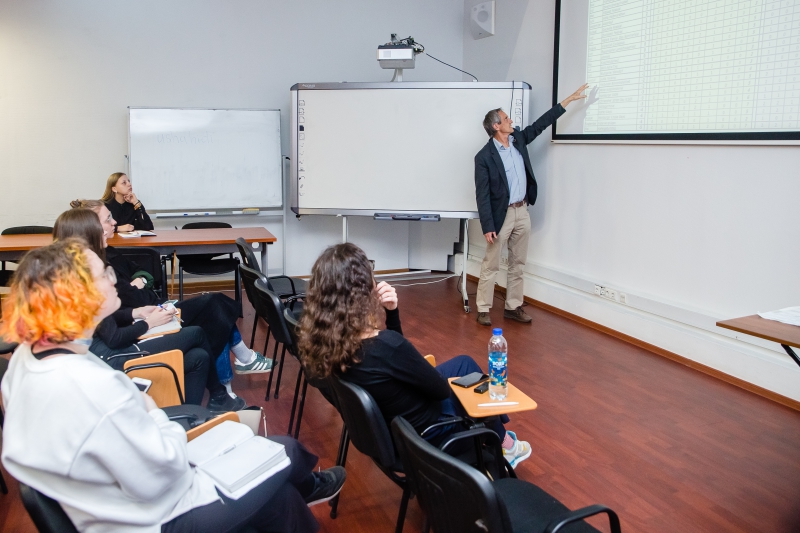
Entrepreneurial Master’s programs
Entrepreneurial Master’s programs train specialists whose goal is to build their own businesses and run their own startups. These programs are implemented at ITMO’s Faculty of Technological Management and Innovations.
“According to statistics, economists, managers and law students are no longer sought-after on the labor market. With businesses getting more and more technologically advanced, professionals at the intersection of science and technology are becoming more in demand. Neither MBA courses nor short acceleration programs can give students all the necessary competences. What today’s students need to be successful on the labor market is deep understanding of modern technologies and fields, creative thinking, teamwork skills, and ability to generate solutions for a range of business tasks,” notes Anton Gopka, head of the Faculty of Technological Management and Innovations.
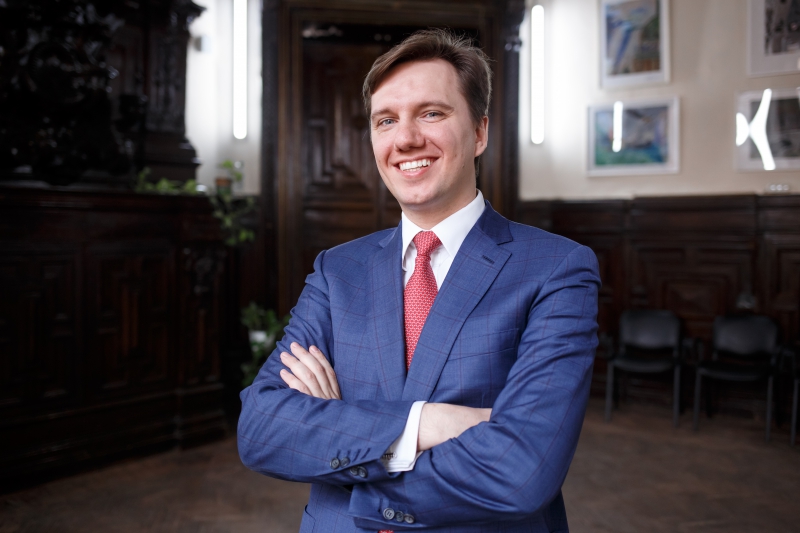
How studies are conducted
In the course of their studies, the students of ITMO’s entrepreneurial Master’s programs learn to work in teams, develop prototypes of their products at the Faculty’s engineering center, as well as get an opportunity to launch their own project on the international market. In addition to that, the students can participate in a special program that allows them to present their Master’s thesis in the form of a business project, on which they work together with renowned entrepreneurs.
Opportunities
“Jobs in innovations have the best salaries, but there are a lot of barriers that can prevent specialists from entering this field. Thus, our task at the Faculty of Technological Management and Innovations is to provide students with relevant and topical knowledge and give them the life and professional experience needed to overcome these barriers as early as during their studies,” says Anton Gopka.
To ensure the future professional success of the students, ITMO University’s entrepreneurial programs aim to not only encourage their personal growth but also foster essential competencies and skills such as product development, an in-depth understanding of the specifics of the regulations concerning technological industries, intellectual property management, innovation marketing, and others. Practicing professionals familiarize students with the business models of the largest sectors of innovation economy: ICT Entrepreneurship, Life Sciences, Foodtech, Cleantech, transport innovations, engineering in creative industries, printed electronics technology and digital transformation of hi-tech manufacturing. Apart from that, #itmotech students can choose the fundamental technological module and do an internship at one of the Faculty’s industrial partners.

Career prospects
As noted by Anton Gopka, the education obtained by young entrepreneurs will allow them to confidently present their ideas to professional investors both in Russia and abroad.
“We understand that not all of our graduates will go on to become entrepreneurs, but we are absolutely certain that the transformative experience they will get thanks to the program will come in handy for working on a wide range of leading positions in the hi-tech sector. In any case, jobs in the innovations field will be more well-paid than those in the more traditional fields. Our graduates will be able to find employment at the most promising departments of major companies and high-level state and private investment funds, and also have the opportunity to conduct public administration in the sphere of innovations,” underlines Anton Gopka.
Master’s programs in promising fields
Belonging to this group are programs that for now are centered on ITMO University’s youngest department, Institute of International Development and Partnership, but in the future will spread to all of the University’s schools. As of now, the ranks of ITMO’s Master’s programs in promising fields include Art & Science, Data, Culture and Visualization, and two programs in science communication: Science Communication and Science and Technologies in Society (implemented by ITMO together with the European University at St. Petersburg, the latter will launch this fall).
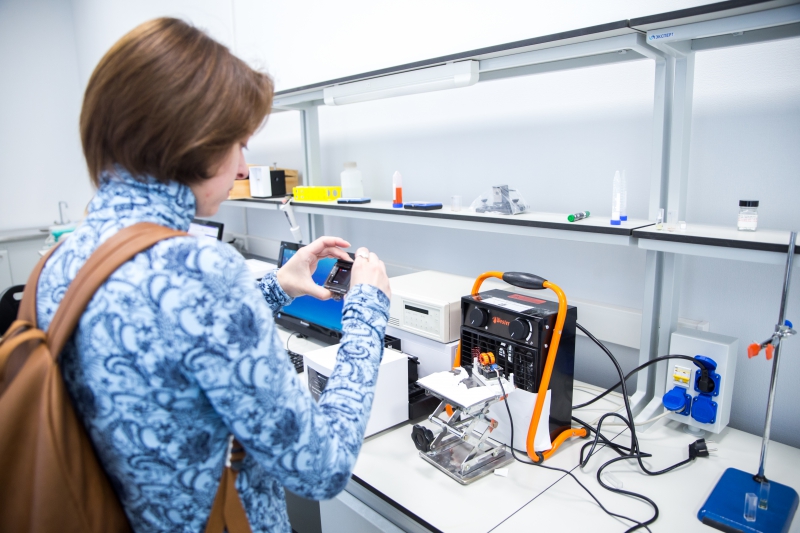
“While before science was seen as secluded in the ivory tower, as something very far-fetched, now scientific research and science communication have a solid standing as very topical and relevant tasks. Specialists joining our Science and Technologies in Society program will become some sort of technological brokers looking out for and analyzing new trends. On the other hand, they will have to be able to unite different kinds of people: the academia and the stakeholders,” comments Vadim Volkov, rector of the European University at St. Petersburg.
As noted by Sergey Kolyubin, the decision of launching such programs is based on the analysis of international practices, as well as scientific, technological and educational foresight.
“Roughly speaking, these programs are not mainstream but rather something that promises to become the next big thing both from the standpoint of potential volume of this up-and-coming labor market and the technological and socioeconomic prospects of training specialists with this expertise,” explains Sergey Kolyubin. “The names of these programs and related professions can appear exotic, but looking back some ten or five years go, even the present tech giants such as Facebook, Uber and SpaceX were seen by old-schoolers as the toys of the young, but now it is them that dictate the rules.”



